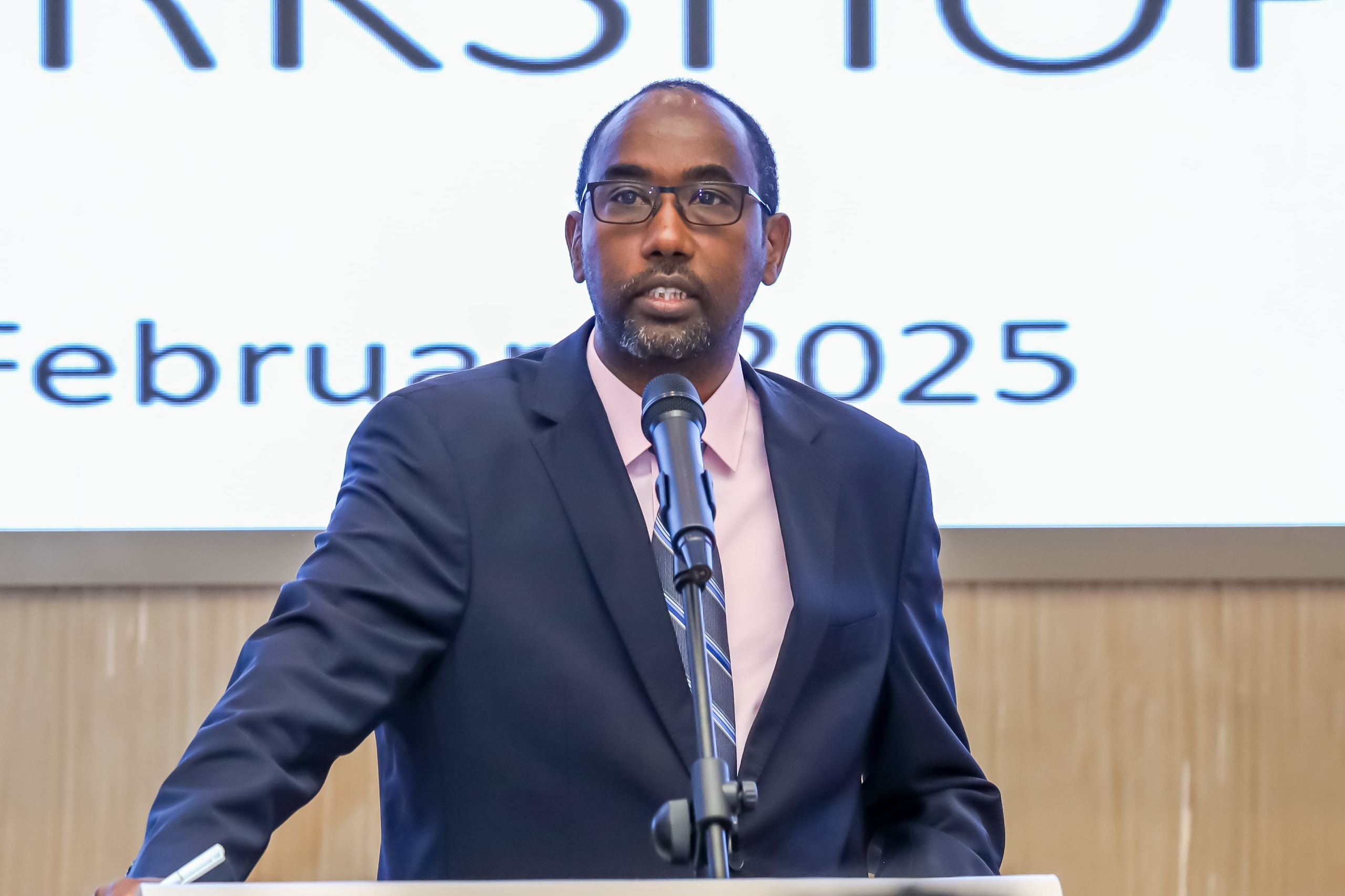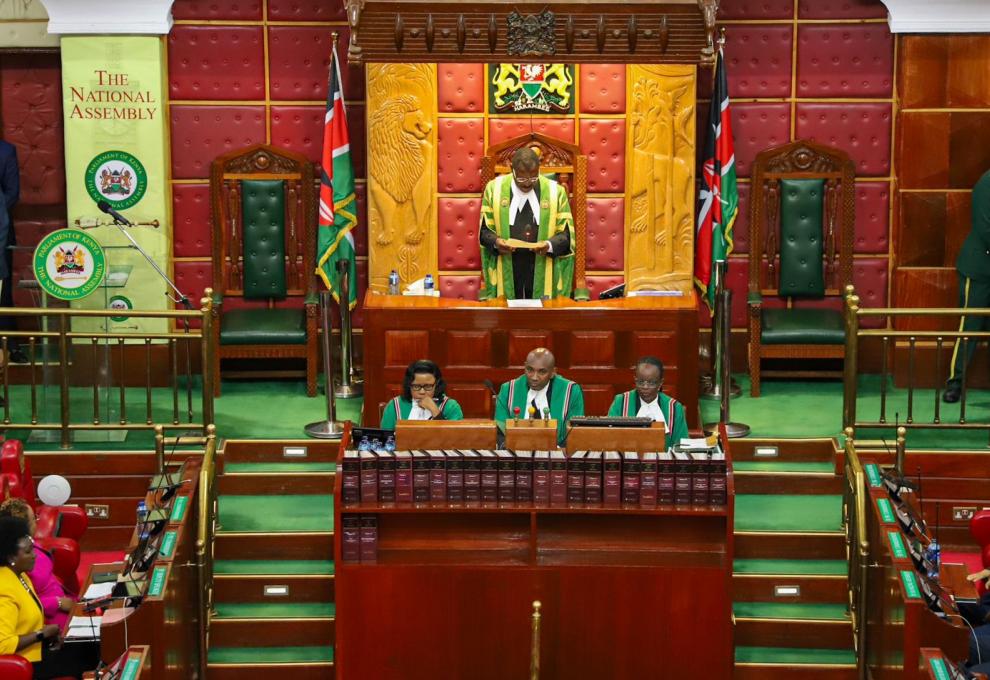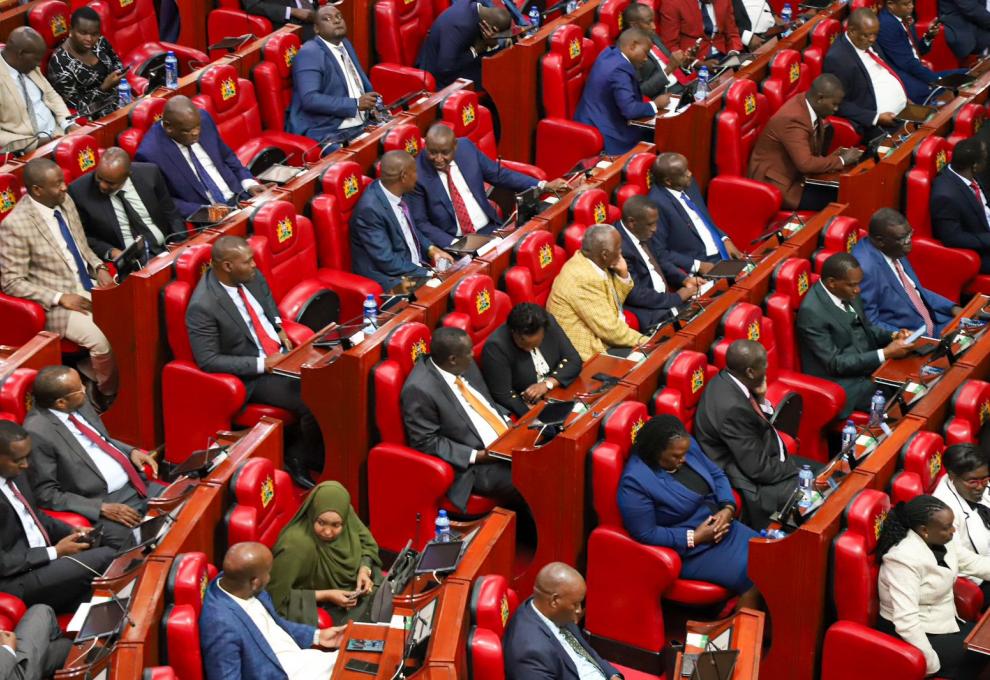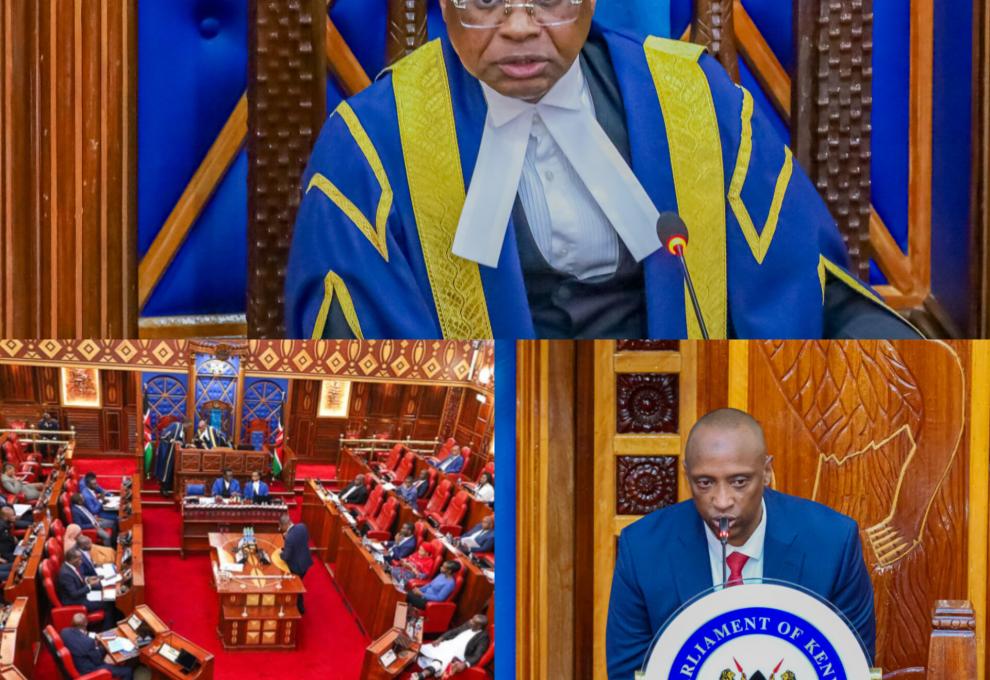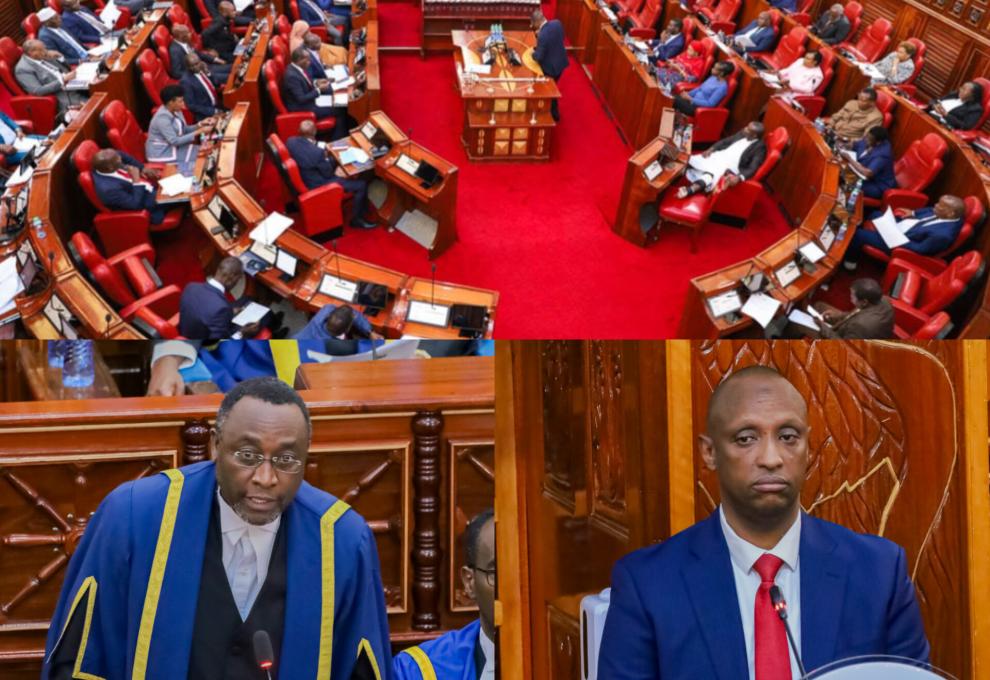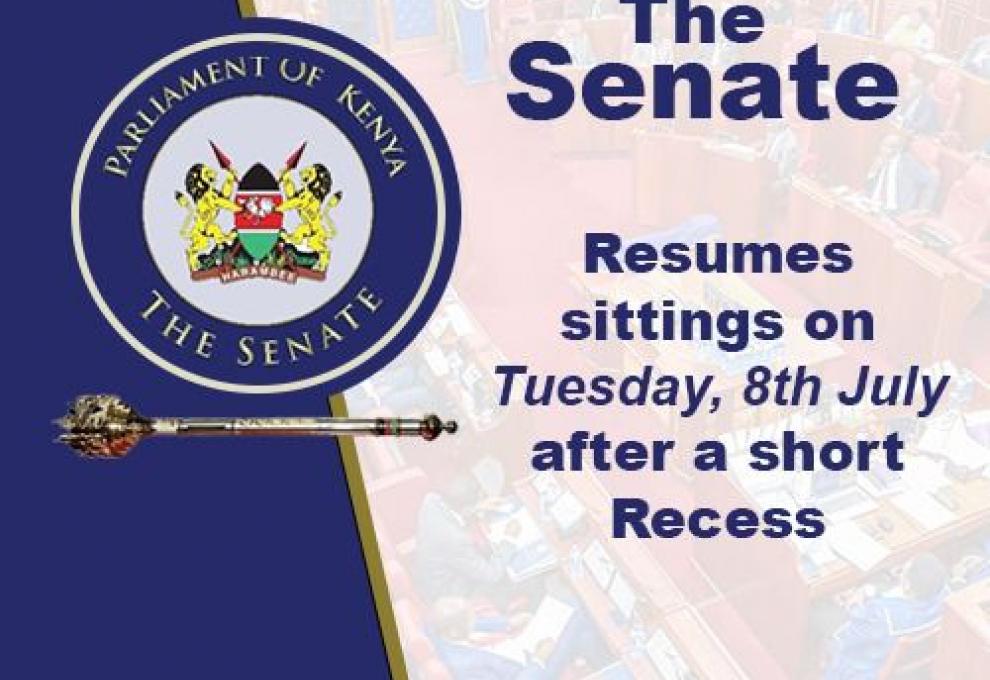𝐒𝐄𝐍𝐀𝐓𝐄 𝐑𝐄𝐅𝐋𝐄𝐂𝐓𝐒 𝐎𝐍 𝐀 𝐒𝐄𝐒𝐒𝐈𝐎𝐍 𝐎𝐅 𝐏𝐑𝐎𝐆𝐑𝐄𝐒𝐒 𝐀𝐍𝐃 𝐓𝐀𝐏𝐒 𝐎𝐏𝐏𝐎𝐑𝐓𝐔𝐍𝐈𝐓𝐈𝐄𝐒 𝐅𝐎𝐑 𝐆𝐑𝐎𝐖𝐓𝐇
Today, Senate staff convened for the Fourth Reading to review its performance during the Third Session of the 13th Parliament (February to December 2024) and plan for the Fourth. While the Senate demonstrated a strong commitment to its duties – evidenced by a significant increase in sittings and active engagement in high-profile political processes – the review also highlighted areas for enhanced effectiveness.
Delivering the Report of the Third Session, Deputy Clerk Mohamed Ali, acknowledged the increased workload the Senate had undertaken.
“Our commitment to enhanced governance is evident in the record 135 sittings held this session, marking a 32.6% increase from previous terms,” he stated.
“The introduction of morning sittings and additional special sessions reflects our dedication to managing an expanding legislative workload.” This increase in sittings demonstrates the Senate’s responsiveness to the demands of its mandate. “We have been busier than ever before,” he added, “and this increased activity underscores our commitment to serving the Kenyan people.”
The Session was marked by politically significant engagements, including the consideration of impeachment proceedings, most notably the removal of Deputy President Rigathi Gachagua on five substantive grounds. The Senate also deliberated on impeachment motions against three County Governors, ultimately removing Meru Governor (Kawira Mwangaza) while dismissing charges against the Deputy Governor of Kisii, (Dr. Robert Monda) and refusing to consider the proposed impeachment of the Governor of Kericho (Dr. Eric Mutai) based on a constitutional threshold. These high-profile cases positioned the Senate at the centre of national political discourse, providing an important platform for deliberating on matters of public interest.
“These engagements, while demanding, reinforced the Senate’s vital oversight role,” noted Mr. Mohamed. “They demonstrated our commitment to upholding the principles of accountability and good governance.”
While the Senate demonstrated its commitment to its oversight function, the review also offered an opportunity to reflect on its legislative progress.
“We have made strides in our legislative work,” Mohamed emphasized. “The enactment of the County Allocation of Revenue Bill is a significant achievement, demonstrating our capacity to deliver on key legislative priorities. However, we also recognize the need to enhance our processes to ensure more bills are successfully enacted.”
Operational efficiency was another key area of the review. “We are constantly working to improve the effectiveness of our operations,” Mohamed noted. “We recognize that quorum challenges and budgetary constraints can present obstacles, and we are committed to finding innovative solutions to address these issues. The dedication and hard work of our committee staff, even in the face of these challenges, is commendable.”
He also addressed the postponement of the ‘Senate Mashinani’ initiative. “The postponement of the ‘Senate Mashinani’ program, while disappointing, reflects our commitment to fiscal responsibility. We remain dedicated to the principles of taking the Senate closer to the people, and we are actively exploring alternative strategies and funding opportunities to ensure the program's future success,” he clarified.
Looking ahead to the Fourth Session, Mohamed called for continued collaboration and a focus on strategic priorities.
“As we enter what is traditionally the most intensive period of our parliamentary term, we must continue to prioritize efficiency and strategic planning,” he urged. “Our focus remains on strengthening our oversight capabilities while upholding the core values of integrity, accountability and inclusivity that define this institution.”
He also emphasized the importance of ongoing professional development. “The complexity of our mandate requires continuous learning and adaptation,” he stated. “Our ability to serve the Kenyan people effectively depends on our commitment to professional growth and institutional strengthening.”



